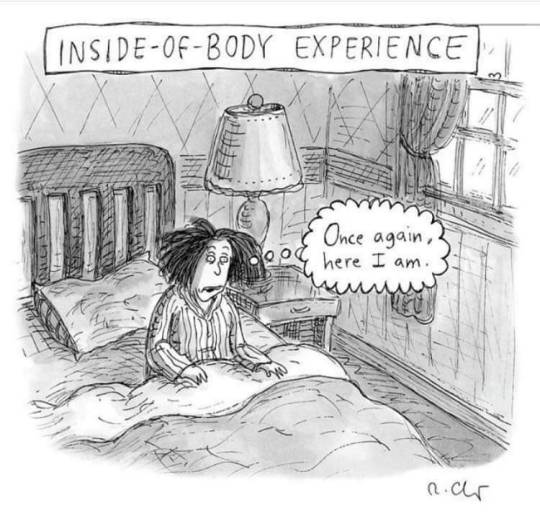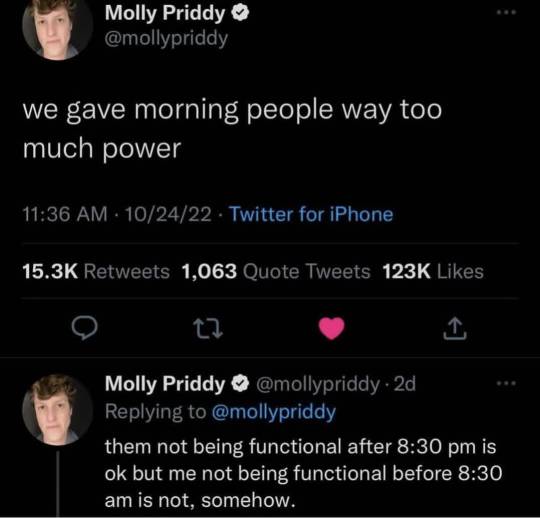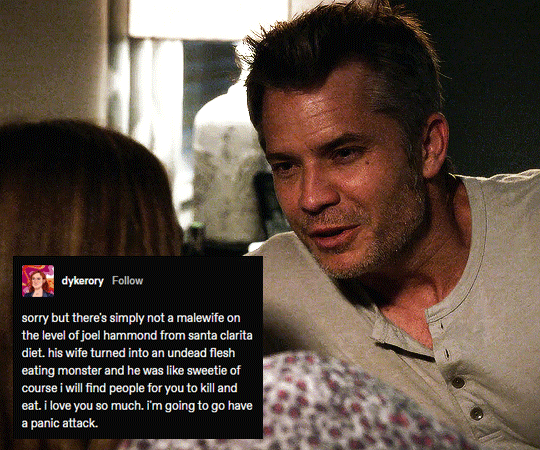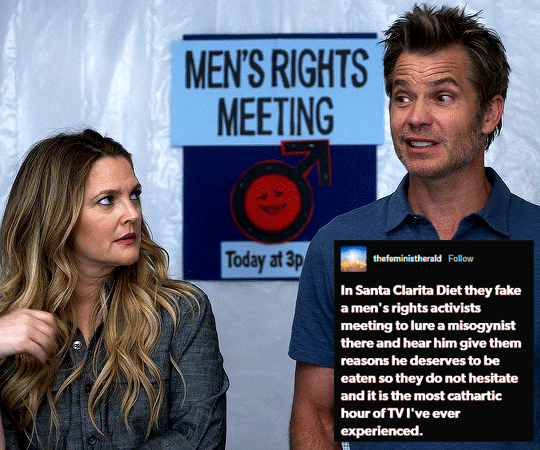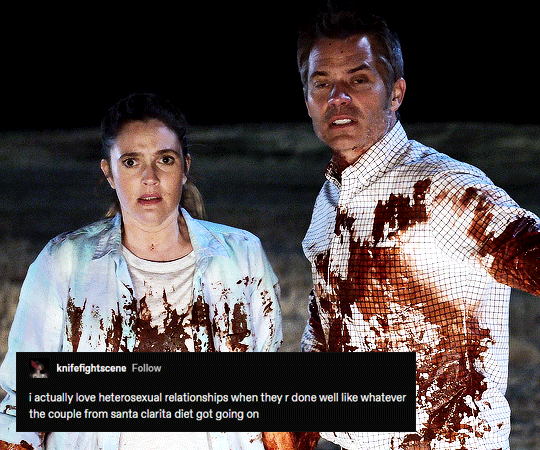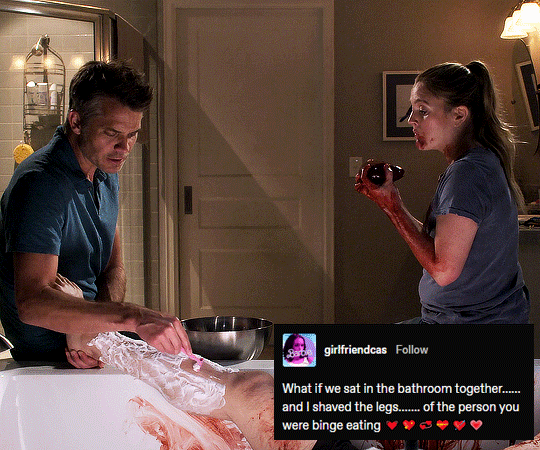Text
When I find myself in times of trouble
Granny Weatherwax comes to me
speaking words of wisdom:
I can't be having with this.
1K notes
·
View notes
Text
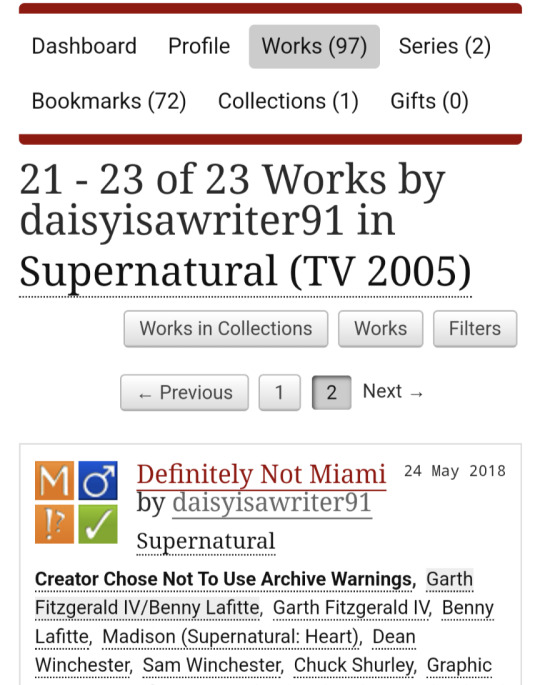
Congratulations to this one person who has written 23 out of 40 existing Garth/Benny fics and has basically never written anything else. Imagine this must be the best day ever for you 🎉
7K notes
·
View notes
Text

Parents really post stuff like this online and wonder why their kids don't trust them
25K notes
·
View notes
Text
hawkins' description of jonathan reads like a pet bio on a shelter website
3K notes
·
View notes
Video
oh my god, please take 3 seconds out of your day to watch this.
288K notes
·
View notes
Text
Listen if the study of ancient humans doesn’t make you at least a little bit emotional idk what to say.
I started crying today at the museum because they had reconstructed the shoes of Otzi the iceman.
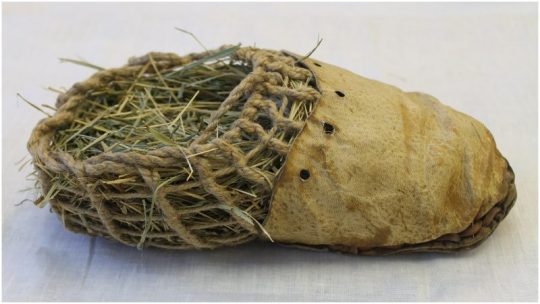
Either he or someone he knew who cared about him made these shoes out of grass and bear skin and twine and he was wearing them when he died over five thousand years ago.
And a Czech researcher and his students did reconstructions of these shoes and wore them to the same place where he died to test them out and they were like yep! These shoes are really cozy and comfy and didn’t give us blisters while hiking!
Is that not just the coolest shit ever????
45K notes
·
View notes
Text
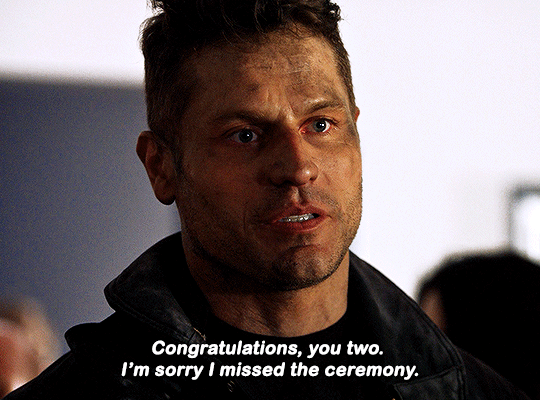
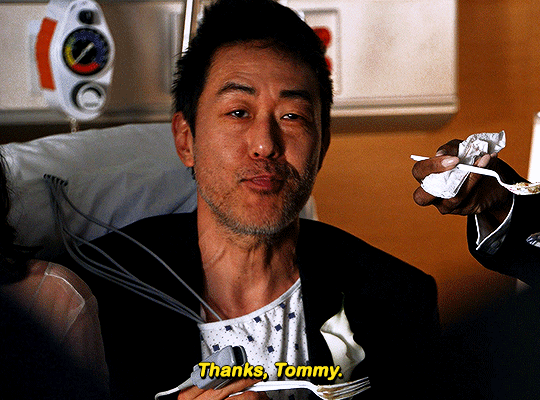
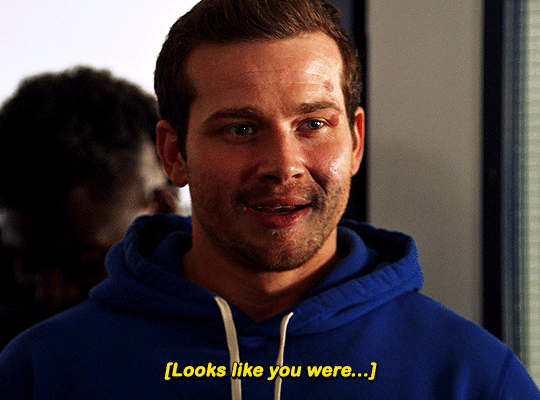

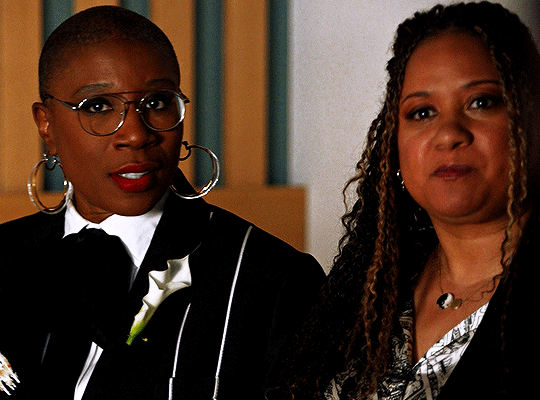
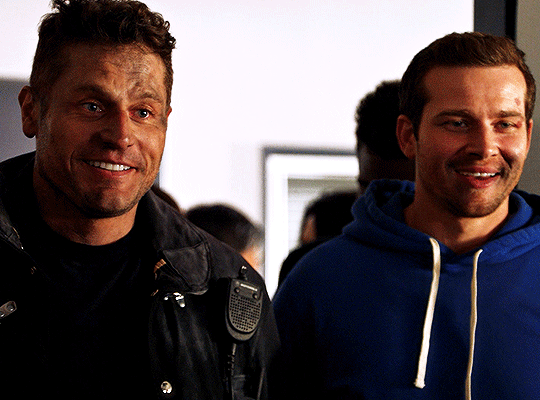
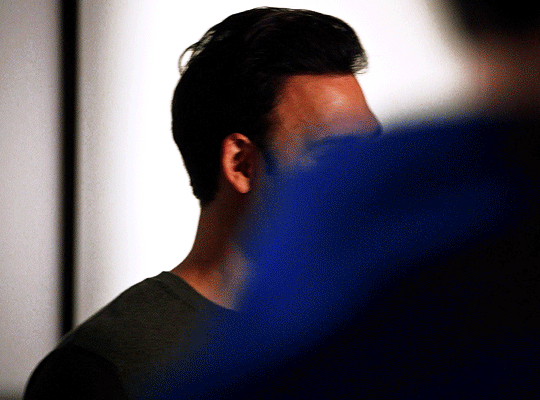
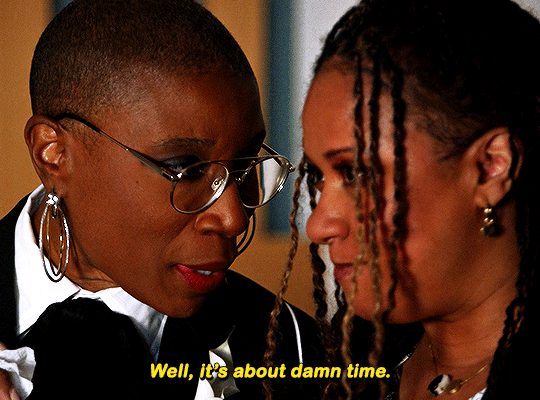
bucktommy + #subtlety
9-1-1 | 7.06 There Goes the Groom
1K notes
·
View notes
Note
are certain lubes better suited for vaginal or anal sex? or are they all the same?
hi anon,
water-based, oil-based, and silicone-based lube are all suitable for either vaginal or anal sex. many people prefer silicone-based lubricants for anal sex because it's so long-lasting and durable, which is helpful when you're working with an orifice that won't naturally lubricate itself. oil-based lubricants are also a no-go with latex condoms, which is relevant for both vaginal and anal sex. beyond that it's all a matter of personal preference!
20K notes
·
View notes
Text
As always, my inner lawyer decided that two in the morning was a good time to talk about Beauty and the Beast (the Disney movie, folks), Stockholm Syndrome, and why the Belle/Beast relationship is great, healthy, and wonderful.
Firstly, let's address Stockholm Syndrome, which is the heaviest accusation and ironically, the easiest to dismiss: this condition occurs gradually between a victim and their abuser. It predicts submission as a defense mechanism — something that definitely doesn't happen in Beauty and the Beast, as every time Belle needs to defend herself, she is assertive and definitely not submissive. In fact, when she feels truly threatened, she flees, an action someone within the syndrome would never take. Belle only becomes vulnerable when she sees the Beast being vulnerable first (in this case, when he gets injured saving Belle from the wolves), never before that.
So, with the Stockholm Syndrome discussion out of the way, all that's left is to show how their relationship is not toxic or problematic but simply an enemies-to-lovers dynamic like any other:
Firstly, let's note the filmmakers' intentions: I don't know if you're aware, but Howard Ashman, who collaborated on the film's production, was a gay man who died shortly after finishing work on Beauty and the Beast. It's remarkable and very powerful that this gay, and HIV-positive man participated in the film because he (much like Belle and the Beast in the film) is a perfect example of being excluded by society because of something inherent that we couldn't change even if we wanted to.
Now, speaking of the story, we have three elements to analyze before diving into the plot: Gaston, the Beast (and in this context, Belle also fits), and the villagers.
Gaston is exactly what society glorifies without reservation, and he knows it. What's scariest about Gaston's villainy is that it's entirely normal; I could go to a nightclub and find at least ten like him just in the entry line.
The Beast, on the other hand, despite embodying everything society glorifies in certain aspects — man, white, rich, and, as far as we know, heterosexual and cisgender, just like Gaston — has something that sets him apart, something for which he is constantly rejected, as depicted in the film — and which is a metaphor for something else — as the "beast's ugliness." The same thing happens with Belle, but in her case, it's more explicit: she is rejected and constantly judged for being a woman who likes to learn, likes to read, something very strange to others.
And then, we have the villagers, who represent society: they judge Belle for being different, judge Maurice for being eccentric, and judge and exclude anyone who opposes their "normality," as Belle herself mentions in the first conversation with her father on screen:
" — Daddy? Do you think I'm… strange?
— My daughter? Strange? Where did you get such an idea?
— Oh, I don't know. It's just that I don't feel like I fit in here: I don't have anyone to talk to." (Guys that's a direct translation of the Brazilian dubbing, so things might be different from the original English)
Having defined these three main aspects of the film, let's analyze the plot (remembering that I'll start talking about the story without including the Beast's behavior before the story begins, i.e., I won't consider the reasons that led the enchantress to transform him into the Beast because it's only briefly mentioned, so I can't judge motives or understand his behavior then):
At the beginning of the film, when Maurice is imprisoned by the Beast, a line from her while Belle's father is terrified to see him for the first time catches my attention:
" — What are you looking at? […] So, you've come to see the Beast, haven't you?"
And this line just breaks me because it implies (even if it's not spoken in the film) that not so long ago, people would go to the castle to ridicule the Beast's appearance, like a bunch of idiots mocking others' suffering. This alone explains the Beast's angry behavior at this event — of course, provided you understand that the whole issue of imprisoning Belle's father for "trespassing" needs to be understood by anachronism since we can't forget that the story actually takes place in pre-French Revolution France.
So, Belle arrives and decides to stay in his place. It's important to understand that here, the Beast sees a chance — perhaps for the first time — to truly break the curse: Belle not only seems to fear him as much as she is willing to stay, in the Beast's view, by her own choice. Complicated situation or not, the Beast has a chance to rid himself (and all the others whose conditions are his fault and his responsibility) of a condition that causes him suffering, and he chooses it when Belle offers it to him.
One detail between scenes that is very important to notice as well: very different from Gaston, the Beast listens to those who are "inferior" to him. While Gaston constantly ignores, interrupts, and belittles LeFou, the Beast listens to Lumière when he suggests that he move Belle to a room instead of the cell or when he suggests that the Beast try to engage in a conversation as he leads her to the room, he listens when Cogsworth and Mrs. Potts give suggestions to him before dinner that Belle refuses. Later on, he even asks Lumière and Cogsworth for gift suggestions for Belle. The Beast listens to the people around him and ends up agreeing with them when they are right, and this is very important to form an idea of his character: someone who really listens to the people around him is not normally abusive.
It's also interesting to note that, as much as the "staff" in the castle is wary of the Beast's temper, this does not stop them from trying to speak up when they think something should be changed, which is more than can be said for Gaston, who constantly "shuts up" LeFou while he's giving his opinion, except if it's to glorify him: another very important character trait that can be pointed out.
Within this situation, there's Belle's rejection for different reasons than society's: although I believe Belle has her share of prejudice too, the main reason for Belle's rejection of the Beast is the fact that she's imprisoned there, something the Beast ultimately doesn't understand and which initiates the conflict between them. However, even when the Beast is completely angry, Belle doesn't accept his behavior, so much so that when the moment comes when he gets angry about the West Wing, she flees.
At this moment, however, there's another thing that catches my attention: as soon as Belle leaves the West Wing and the Beast "calms down," he immediately feels devastated because he knows what he did and knows he did wrong, but mainly because he knows he will be rejected once again — and this time it's his fault. Unfortunately, it's common that when we are constantly seen as less than human, we begin to see ourselves as such and, worse, we begin to act as less than human.
Still, he goes after her and protects her from the wolves, and then, once again, Belle chooses to return. But skipping this, let's go to the part where she takes care of him and says, "By the way, thank you. For saving my life."
Here, it's possible to understand that for the first time since she decided to stay, Belle "lets her guard down" around the Beast, and what he does in return is simply a "You're welcome": he also becomes vulnerable around her. They take a step toward each other. Now, a toxic person would surely take the opportunity to point out how Belle was being irresponsible, or how she shouldn't have gone to the West Wing, thus recapitulating the previous discussion between them to prove she was right or something like that.
By deciding to simply say "you're welcome," the Beast not only behaves very maturely, but he takes responsibility for what he did in the West Wing, accepts that it had consequences, but also comes to understand that he can do the right thing and, once he does, he will be heard.
So, in this first part of the film, as long as one of them doesn't give in at some point, they're in constant conflict, just like enemies. There is no abuse there that is done between two people who love each other or are friends or lovers: there is only the exchange between two people who, for their own reasons, are not comfortable being vulnerable with each other.
Now, let's fast forward to the scene before the library, where Belle is walking with Philippe and is upset, then he and the little dog cheer her up. It's important to understand here, as in previous scenes, that Belle doesn't end up enjoying being in the palace just because of the Beast, but also because of all its inhabitants: Cogsworth, Mrs. Potts, Chip, Lumière, the dog, Philippe, Plumette, etc.
Still in this scene, we are transported to the Beast's view from above, watching Belle playing in the gardens. At this point, he touches the splint that Belle made and decides he wants to "do something for her." He decides he wants to reward her because she was kind to him as if this were not the least one could do, as if he didn't understand kindness as a treatment that should be standard for any human being. How much must a person be judged and rejected to think that kindness is some treatment exclusive to the "deserving"?
This can also be noticed sometime later when they're having breakfast and the Beast eats messily at the table, which ends up upsetting Belle. He notices and tries another way, but eating with the spoon makes him uncomfortable, so, as he takes a step towards her, Belle meets him halfway, with both drinking straight from the bowl, both becoming comfortable. It can also be seen in the scene before the snowball fight when the Beast sings/thinks:
"I noticed your look
And it didn't shake when it touched me
It can't be, what foolishness
No one ever looked at me like that before."
(Again, that's the direct translation of the Brazilian version but I've read the English version and it goes somewhat like that so I decided to leave this one)
The scene where she's reading and asks him to read too is very strong for a few reasons: the first is because of the clear contrast that exists between him, asking them to read Romeo and Juliet again, and Gaston, who treats books in a way that makes me want to murder someone (in fact, I would jump on him the first time he threw my book on the ground, I don't know how Belle can have the patience to deal with him); and the second reason is because after she asks him to read, he admits that he can't, another action that points to the Beast's character. Although he thinks it "devalues" him in some way, he doesn't hesitate to admit that he doesn't remember how to read and doesn't hesitate to accept Belle's help with that.
Then comes the "ball" scene and the moment when Belle admits that she can't be completely happy there because she misses her father so much. There, as in other times in their relationship, the Beast tries to reach a compromise, something both of them feel comfortable with, by giving Belle the mirror so she can see Maurice. But there's no middle ground when it comes to freedom, and once the Beast understands this, he sets her free from the deal she made with him.
Because he loves her, he can't keep her captive, but the Beast thinks that someone can only love him if that person is "trapped" with him. The Beast — and, in reality, even the other castle staff — don't believe that someone can choose him, and that's why they see Belle's departure as a farewell, as a definitive farewell, when in fact she is perfectly capable of coming back.
And then there's the cruelest moment of this film when Gaston finds the Beast and he's sitting on a couch, and the Beast sees Gaston with the arrow pointed and simply does nothing to stop him. This moment breaks me into pieces with so much pain I feel because he's no longer angry, he's no longer reacting against those who are cruel to him because he's different: he's sad, and much more than that, he's tired of fighting against all that prejudice and that feeling that no one will ever love him because of what makes him different.
The Beast almost gives up because he doesn't see anything worth fighting for anymore.
So, that's why I hate it when someone reduces Beauty and the Beast to say that the story is about an abusive relationship, or that Belle has Stockholm Syndrome, or something like that, because the discussion is so much bigger and so much more complex than that, even though it's a children's movie.
I mean, look at how "society" treats the three central characters: they glorify the bully who likes to intimidate and bully people who are different, the guy who is so proud and arrogant that he can't even hear the "friends" he has if they're not praising him, who thinks he can change someone (Belle) to fit into his standards just because he wants to. Meanwhile, the village mistreats, excludes, and ridicules Belle for reading and Maurice for being eccentric, and later, they even try to attack the Beast's castle because of it.
And the love story between Belle and the Beast is about two people who are suffering because of the same problem and end up finding comfort, support, and kindness in each other. It's so much more beautiful than people believe. To conclude, I'll leave here a quote I found in a defense text while researching to write this text:
"Society rewards bullies because it has been taught to believe that their victims don't fit in. And that if someone doesn't fit in, that person needs to be put in their place, or destroyed. And this film clearly demonstrates that this way of acting and thinking is wrong […] and that's why this is one of my favorite Disney movies."
That's it. I hope I've made everything very clear.
37 notes
·
View notes
Text
Ok I know everyone is always like stop writing that he “growled” something that’s not a thing people don’t do that. But guess what. Eliot Spencer does, and it’s great. One of my favorite things. Suck it.
261 notes
·
View notes



